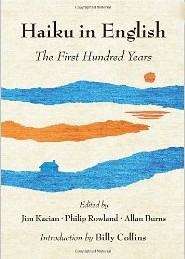Ise Monogatari:
125 short stories in prose and poetry from Japan,
collected prior to about 945

|
|
|
- 125 brief stories or tales,
each with prose and at least one
tanka.
- The most famous of the collections of "poem tales" that focused on the life and works
of a single poet.
- The tales are supposed to present episodes in the life of a celebrated poet and nobleman,
Ariwara no Narihira (825-880): "the legendary hero of early Heian court society, idealized
for sacrificing political favor, fortune, and propriety for love and poetry"
(Shirane, 2007, pp. 184).
- First appeared during the tenth century, about 945 (Miner, 1969, p. 15)
or 949 (Shirane, 2007, p. 184).
- "By the late Heian period, it had become one of the three most influential texts
in the kana tradition (along with the Kokinshuu and
The Tale of Genji)
and it served as a handbook for waka poets throughout the rest of the medieval period"
(Shirane, 2007, p. 185).
- Many of the stories (today we might call them flash fiction) originated in poems
written by the ninth century poet Ariwara no Narihira prior to his death in 880.
- Over the generations with the addition of prose, the pieces expanded
into amorous, fictionalized adventures (monogatari or tales) attributed to Narihira.
- Poems by others were added, with associated prose.
- The work's "authorship is obscure and multiple; its period of composition appears to
have spanned decades, if not a century" (Mostow and Tyler, 2010, p. 1).
- Tahara (1980, p. 168) wrote that Ise Monogatari was
"generally believed to be the earliest and best
example of a poem-tale ... the waka are indispensable to each episode."
- Joshua Mostow and Royall Tyler translated the collection's title as
The Ise Stories (Mostow and Tyler, 2010).
Earl Miner (1969, p. 15) translated it as
The Tales of Ise, while he found that it was also called Zaigo Chuujou Nikki or
Diary of Middle Commander Zaigo.
- The individual pieces were untitled (Mostow and Tyler, 2010)
though Jamie Newhard and Lewis Cook (in Shirane, 2007, pp. 186-203)
included convenience titles for the sixteen portions they translated.
Miner, Earl Roy, translator (1969). Japanese Poetic Diaries. [Translates selections from The Tosa.]
Mostow, Joshua S., and Royall Tyler, translators (2010). The Ise Stories: Ise Monogatari. Honolulu,
University of Hawaii Press.
Shirane, Haruo, editor (2007). Traditional Japanese Literature: an Anthology, Beginnings to 1600,
with additional translators. New York, Columbia University Press.
Tahara, Mildred M., translator (1980). Tales of the Yamato: A Tenth-Century Poem-Tale. Honolulu,
University of Hawaii Press.
-
Links and Books.
-
[Thanks for visiting.]





